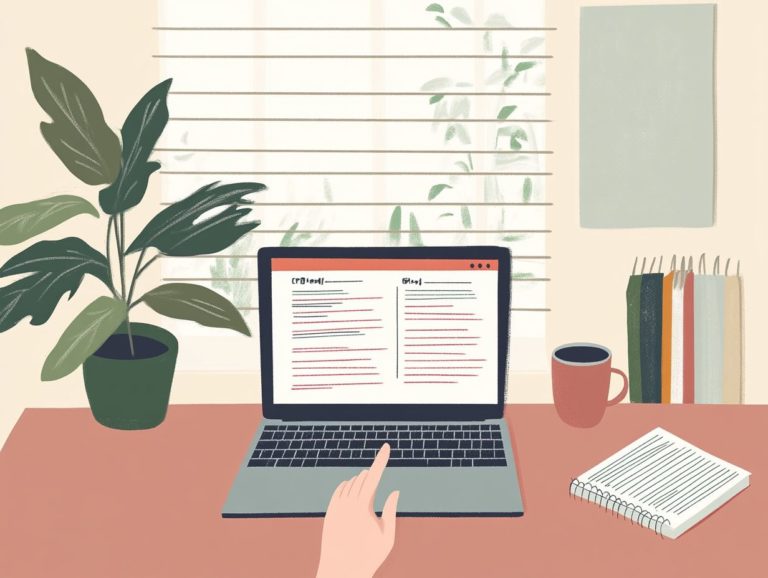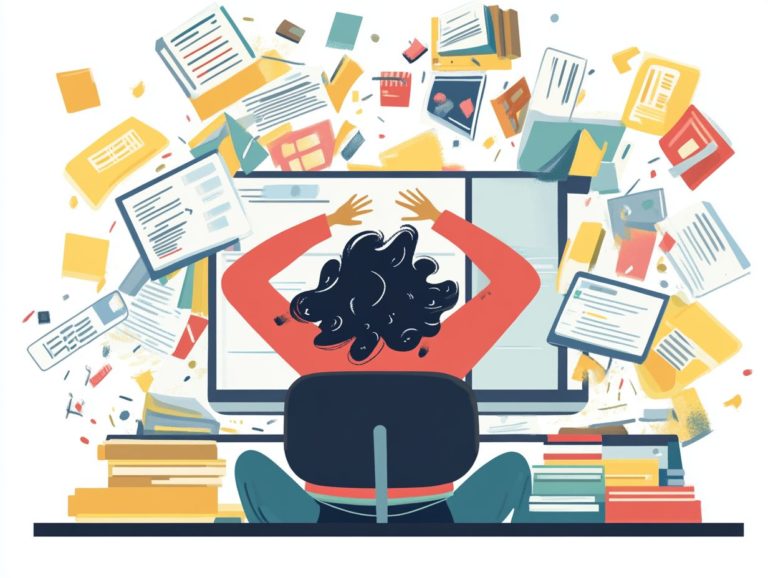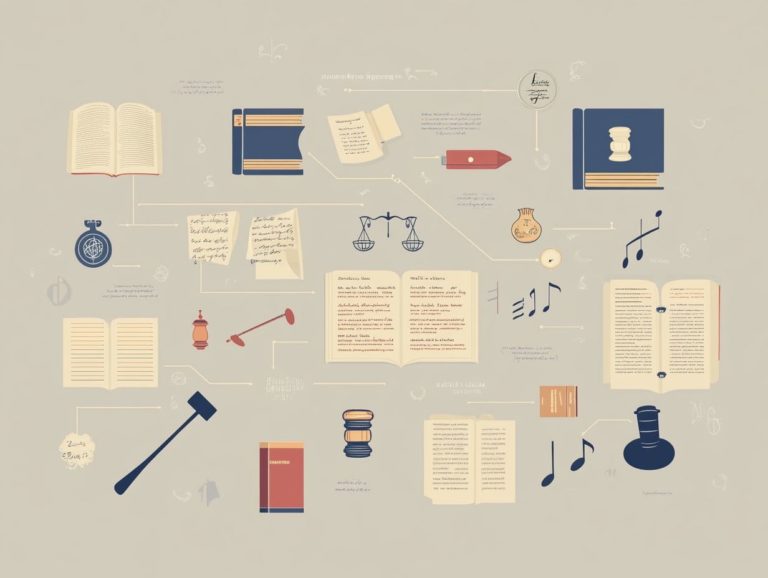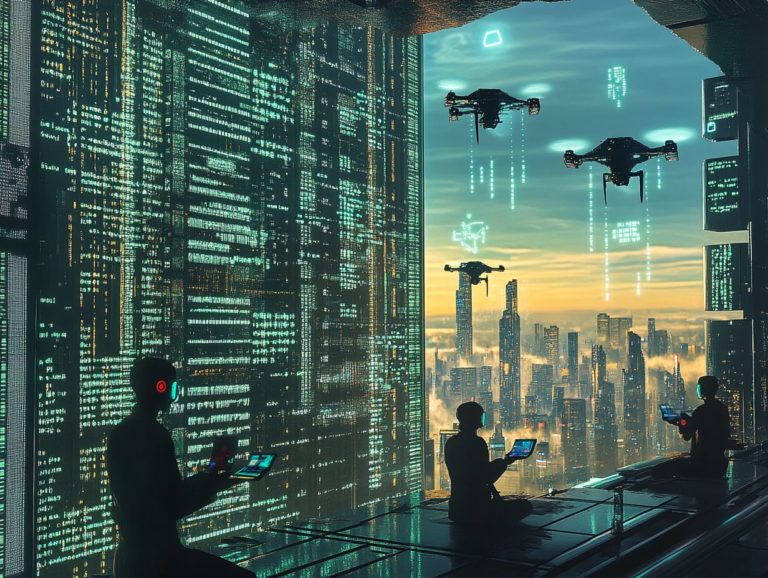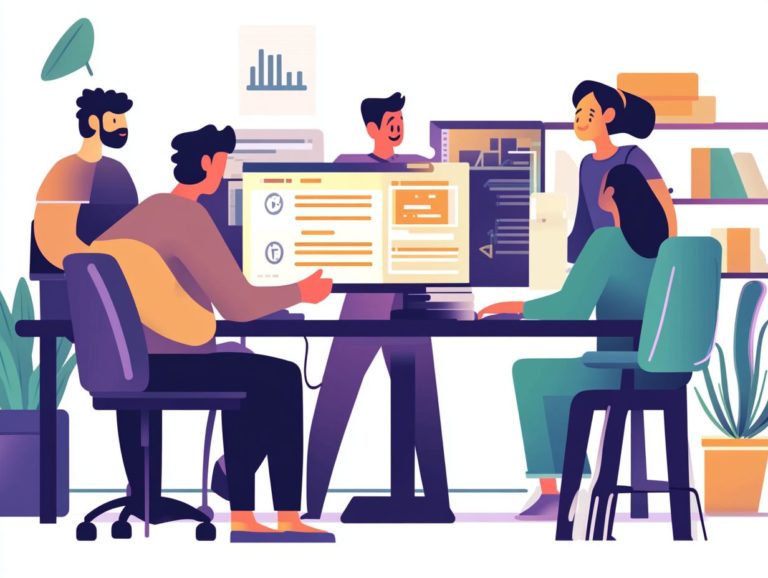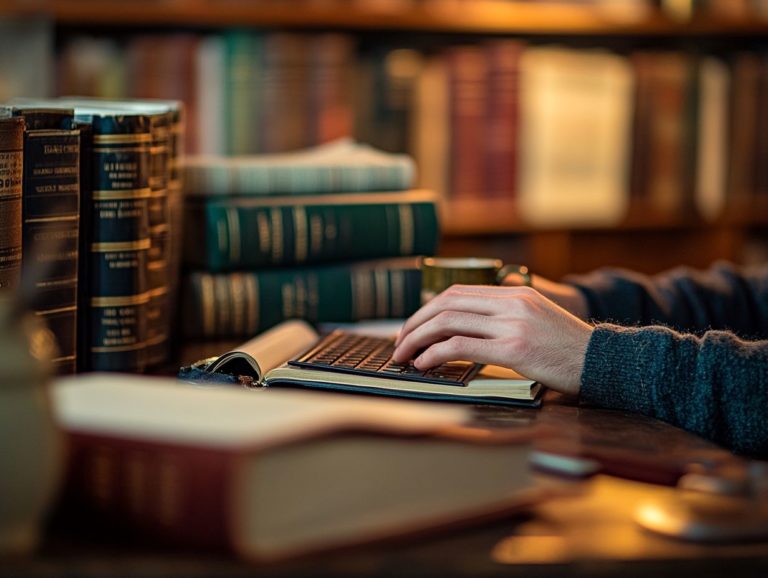Understanding the Intersection of Copyright and AI
As technology evolves, you’ll find that its impact on copyright law is becoming ever more significant and complex.
This article explores how copyright and AI connect, starting from foundational definitions and moving on to the challenges presented by AI-generated content.
Discover how AI might unknowingly lead to copyright issues! We will also grapple with questions of ownership and attribution while examining current regulations at both national and international levels.
The discussion addresses ethical dilemmas and controversies, allowing you to consider what the future may hold for copyright in this rapidly changing landscape.
Engage with us as we navigate these critical topics shaping the future of creativity and intellectual property.
Contents
Key Takeaways:
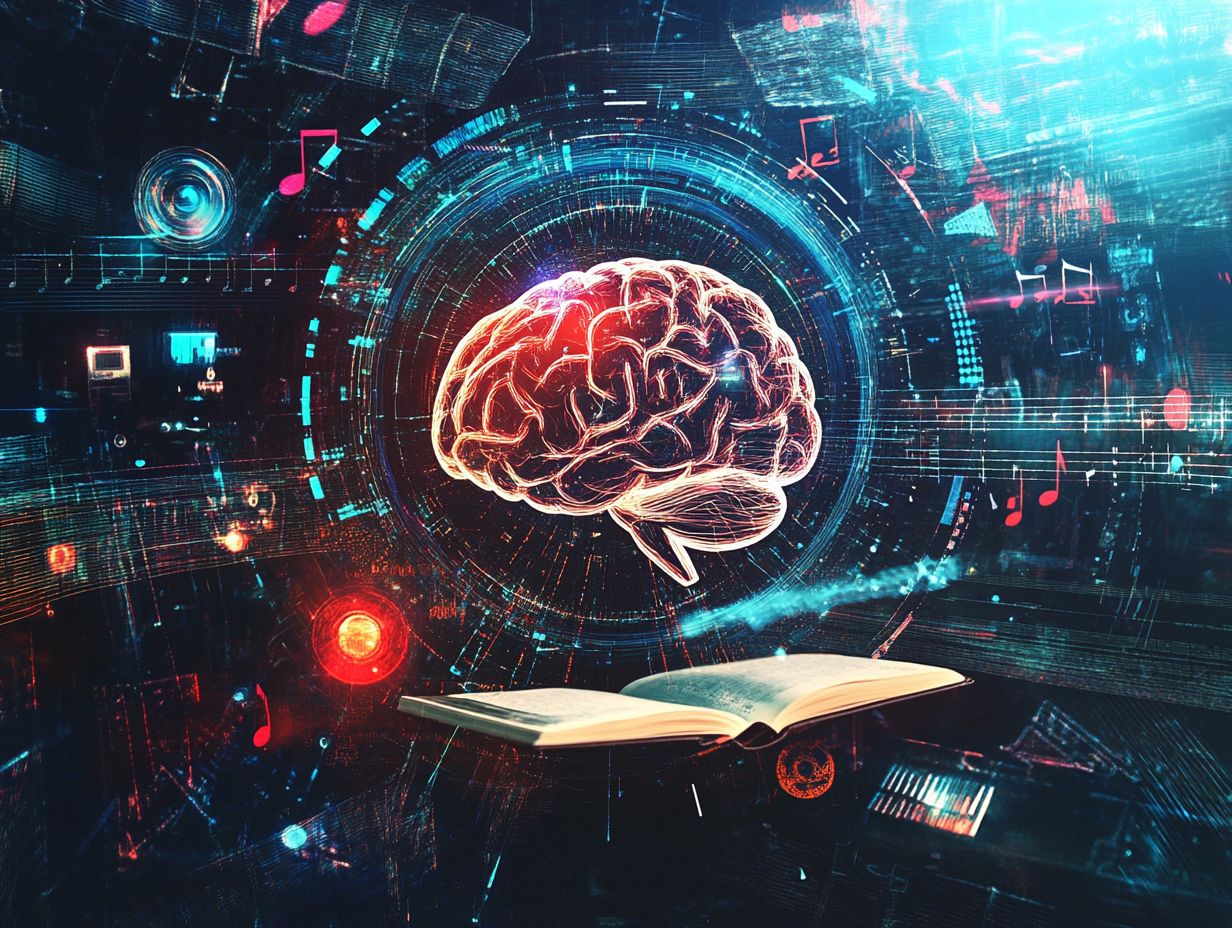
AI technology is challenging traditional copyright laws, leading to debates on ownership, infringement, and attribution. Current regulations are struggling to keep up with the rapid advancement of AI, creating challenges for creators and users. The future of copyright with AI is unclear and needs urgent attention.
Overview of Copyright and AI
The connection between copyright and artificial intelligence (AI) has ignited a profound dialogue within the creative community. This prompts critical questions about ownership rights, legal frameworks, and the ramifications of AI-generated content.
As digital replicas and innovative solutions emerge, AI’s role in creative expression becomes increasingly essential. This evolution requires updated copyright protections to keep pace with changes.
Stakeholders, from the U.S. Copyright Office to various legislative bodies, are wrestling with the complexities of intellectual property rights in an era marked by rapid technological advancement.
Defining Copyright and AI
Copyright is a legal framework designed to protect creators’ rights in their artistic endeavors. AI involves using algorithms to generate content that may closely resemble human creativity.
The core of copyright is to safeguard your intellectual property, granting you exclusive rights to your original works and fostering innovation across various fields from literature and music to visual arts and digital media.
As AI technologies evolve, they blur the lines of what can be considered original, raising significant questions about ownership and authenticity.
When algorithms produce art or music, it challenges traditional notions of copyright. The creators of these AI systems may assert rights over the content generated, complicating creative expression and intellectual property.
This intersection of AI and copyright not only affects artists but also sparks broader conversations about the future of creativity and the ethical implications of machine-generated works.
How AI is Impacting Copyright Laws
The rise of AI has transformed the landscape of copyright laws, prompting a critical reassessment of ownership rights and potential infringements associated with AI-generated content.
Copyright Infringement by AI
AI technologies present challenges regarding copyright infringement, as they can generate content that inadvertently resembles existing works. This can lead to unauthorized use and serious legal consequences.
This unintended similarity raises critical questions about originality and ownership, especially with outputs created by algorithms trained on extensive datasets. Recent controversies where AI-generated art mimics well-known artists’ styles have ignited debates among creators and legal experts.
These scenarios highlight the shortcomings of current compliance mechanisms and the complexities of enforcing intellectual property laws in a rapidly evolving digital landscape.
The risks linked to AI-generated content extend beyond simple infringement; they threaten cultural heritage and the integrity of artistic sectors, complicating discussions around copyright protection.
Copyright Ownership and Attribution
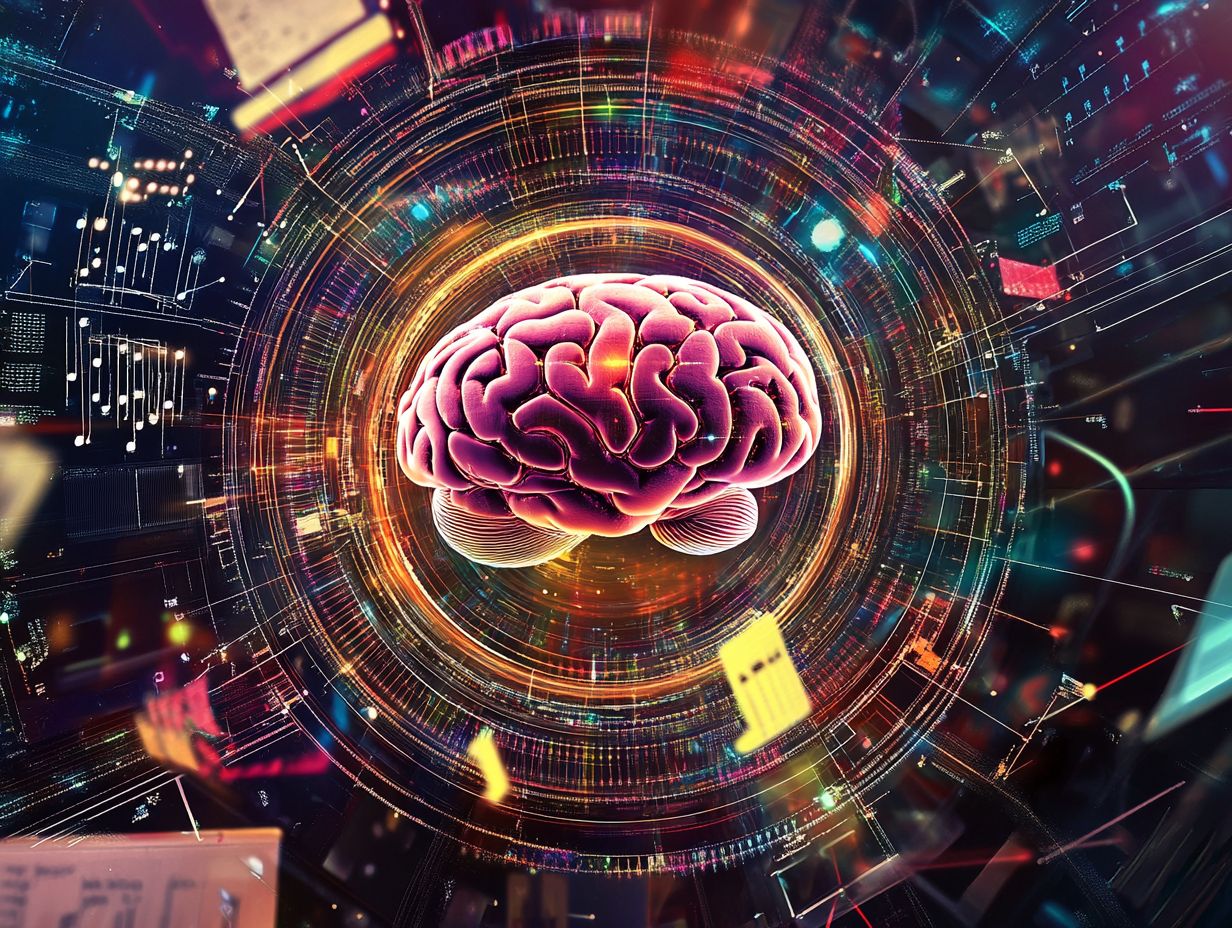
Determining copyright ownership and proper attribution for AI-generated content is a complex legal challenge that laws about ownership of creative work have yet to fully tackle.
With rapid advancements in artificial intelligence, questions arise about who owns the rights to works created by these systems. This remains a heated topic among legal experts, creators, and technologists.
This landscape brings forth critical issues about whether the algorithms or the individuals who designed them deserve credit and protection.
The potential introduction of new legislation could redefine these boundaries, aiming to weave creative input from AI developers into the fabric of copyright law.
As AI capabilities evolve rapidly, effective regulations will require a nuanced understanding of both human creativity and machine-generated content. This approach is crucial to fuel innovation and safeguard creativity!
Current Regulations on AI and Copyright
Current regulations regarding AI and copyright are evolving swiftly in response to rapid advancements in AI technologies.
It s essential for you to explore both domestic and international laws governing intellectual property rights to fully grasp the landscape.
International Laws and Guidelines
International laws on copyright and AI vary greatly. These differences impact how artists and creators protect their work from unauthorized AI use.
For example, in regions like the EU, there is a strong emphasis on robust protections for creative work through regulations such as the Copyright Directive.
In contrast, other areas may lean toward a more lenient approach, favoring innovation over stringent copyright enforcement.
Recent notable cases, particularly those addressing the copyright status of AI-generated art, spotlight the ongoing debate about authorship and ownership in a world where machines are capable of producing creative content.
As these laws continue to evolve, you ll need to navigate a complex web of international legislation that will undoubtedly shape the future of both creativity and technology.
Challenges and Controversies in Copyright and AI
Copyright and AI create a fascinating but tricky landscape. Navigating the ethical implications of AI-generated content is essential for every creator today.
You ll also need to balance the nuances of Fair Use and Creative Commons licensing.
This dynamic realm invites careful consideration and a nuanced approach to ensure that creativity thrives without infringing on rights.
Fair Use and Creative Commons
Fair Use and Creative Commons are essential legal frameworks designed to strike a balance between copyright protection and the need for creative expression, especially regarding AI-generated content.
As artificial intelligence evolves, understanding these legal constructs becomes increasingly crucial for you.
For example, when an AI model taps into existing copyrighted works to produce new content, questions of ownership and permissible use arise.
In this context, Fair Use might permit transformative works, yet the definition of what qualifies as transformation often sparks lively debate.
Creative Commons licenses offer varying degrees of permissions. However, discerning whether an AI-generated creation adheres to these standards can lead to legal entanglements, especially if the algorithm was trained on materials under restrictive licenses.
A striking illustration of this challenge lies in disputes over music or art produced using copyrighted elements, raising significant legal questions regarding the applicability of Fair Use or compliance with Creative Commons guidelines.
Ethical Considerations
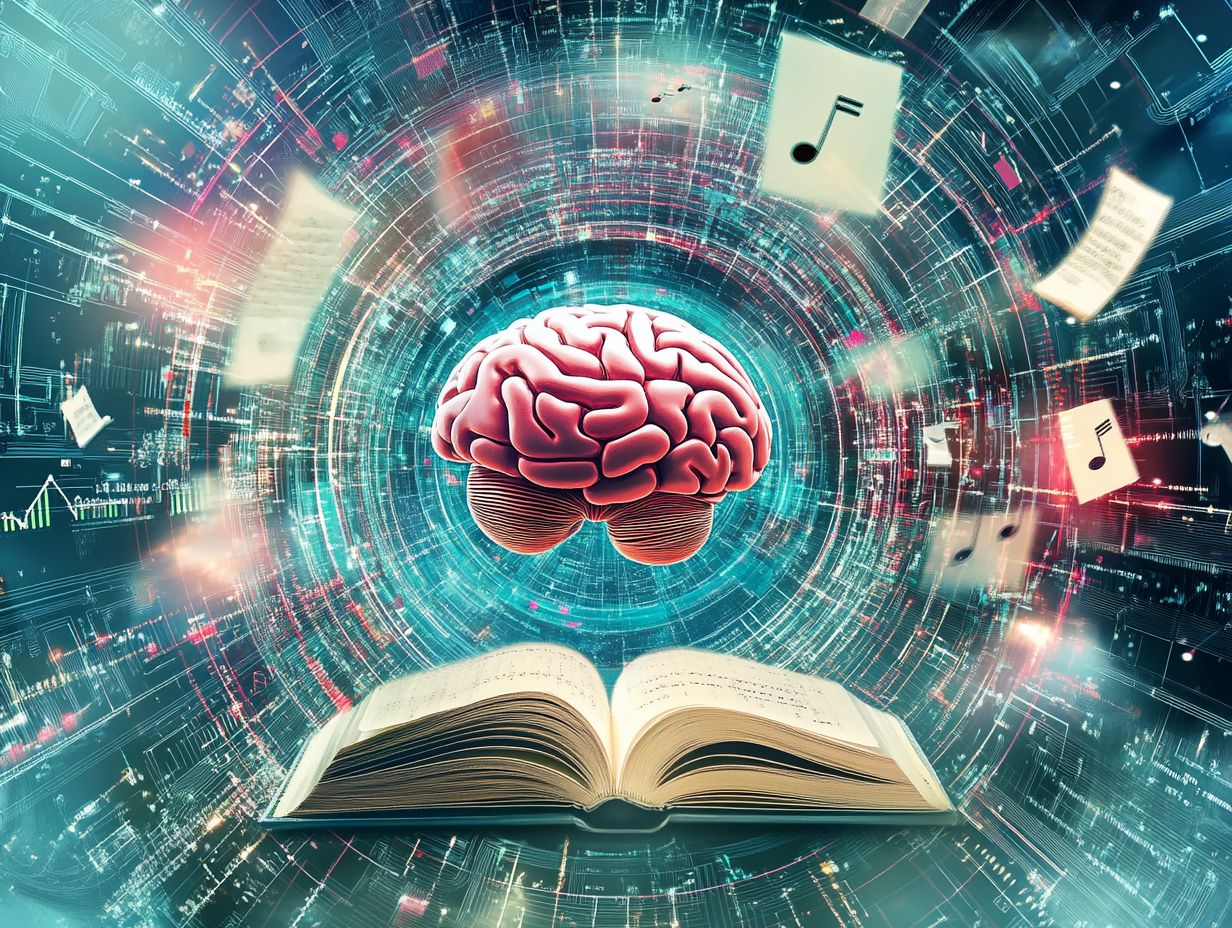
The ethical considerations surrounding AI and copyright are essential. They influence artistic labor and the broader creative community.
As the digital landscape evolves at an unprecedented pace, the ability of AI to generate content prompts significant inquiries about ownership, authenticity, and the intrinsic value of human creativity.
You may find yourself navigating concerns that your original works could be compromised or exploited without proper acknowledgment or compensation. This reality underscores the pressing need for meaningful conversations about how to harmonize innovation with the safeguarding of intellectual property rights.
The complex relationship between fair use, licenses, and the rights of creators shows the need for clear guidelines that respect both technological progress and the invaluable contributions of artists.
Future of Copyright in the Age of AI
The future of copyright in the AI era is uncertain but exciting! Stakeholders are actively seeking innovative solutions to address the evolving legal protections necessary for safeguarding intellectual property rights within creative industries.
Predictions and Potential Solutions
Predictions regarding the future of copyright legislation in the context of AI point to a landscape requiring new frameworks to navigate the complexities of AI-generated content.
As technology progresses, you will encounter challenges to traditional concepts of originality and ownership concerning works created by AI. Lawmakers find themselves grappling with critical questions:
- Who truly owns an artwork birthed from an algorithm?
- How can creators safeguard their rights in a digital realm where content can be effortlessly replicated and modified?
Here are some solutions being discussed:
- Create specific rights for AI-generated works.
- Improve transparency in AI systems.
- Develop new licensing models to clarify usage.
We must urgently balance innovation with protection for creators to navigate the evolving landscape of copyright laws.
Frequently Asked Questions
What is the intersection of copyright and AI?
Wondering how copyright and AI collide? It’s all about the legal issues that pop up when AI creates or shares copyrighted material. This includes questions about ownership, infringement, and fair use.
How does AI impact copyright law?
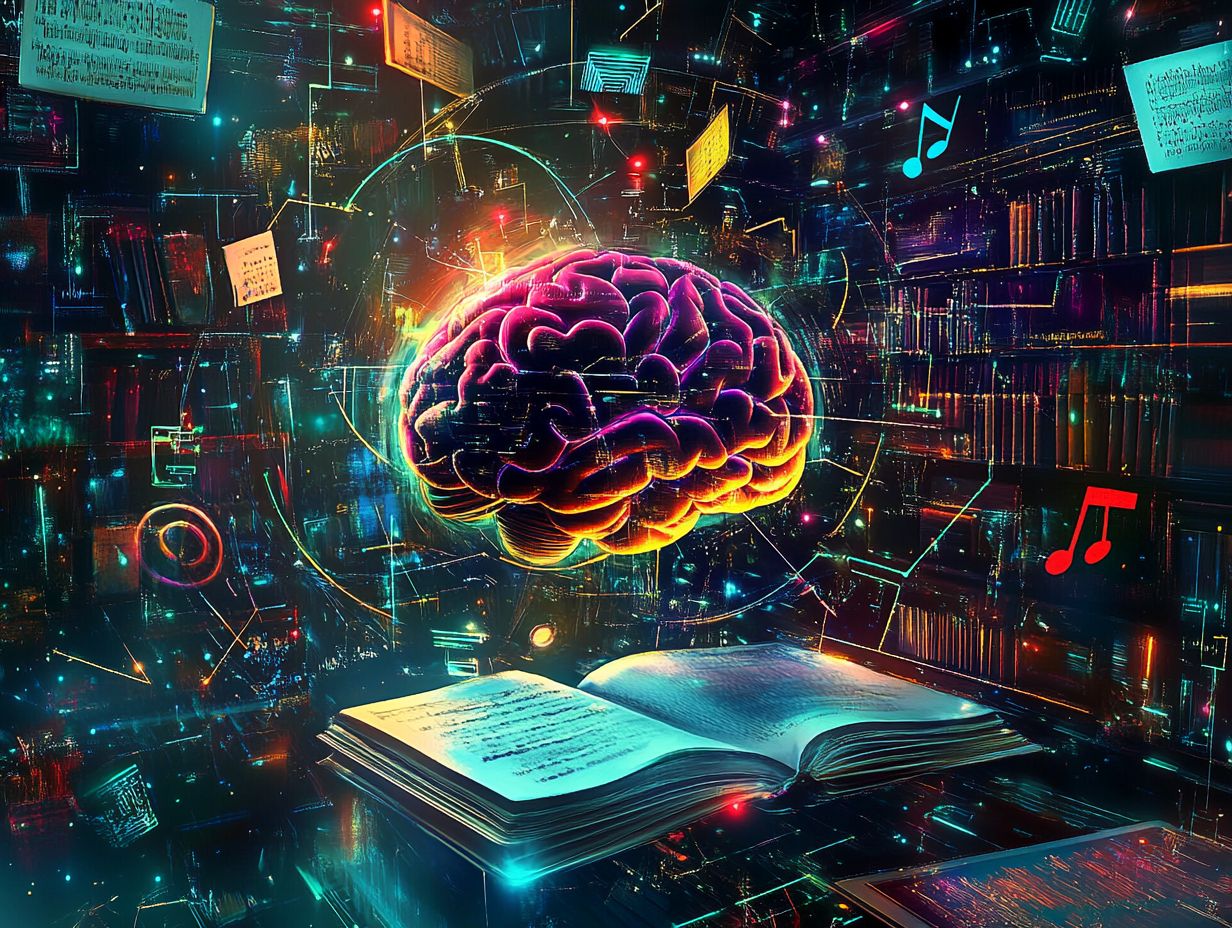
AI has the potential to change the way copyright law is interpreted and enforced. With the use of AI in creating and distributing content, there are questions about who holds the copyright and how to protect original works.
Can AI be copyrighted?
No, AI itself cannot be copyrighted. However, the original content created by AI, such as written articles or music compositions, can be copyrighted by the person or company that owns the AI technology.
What are the challenges of copyright and AI?
One of the main challenges of copyright and AI is determining the ownership of original works created by AI. Another challenge is determining the level of human input necessary for a work to be considered copyrightable.
How can copyright law keep up with AI?
As AI technology continues to advance, copyright law will need to adapt and evolve to address the new challenges and questions that arise. This may involve changes in legislation and court rulings to provide clarity and guidance in this intersection.
What are some potential solutions to copyright issues in AI?
Some potential solutions to copyright issues in AI include creating clear guidelines and laws surrounding ownership and fair use of AI-generated content, implementing licensing agreements for the use of AI technology, and developing AI tools to help identify and protect copyrighted material.

